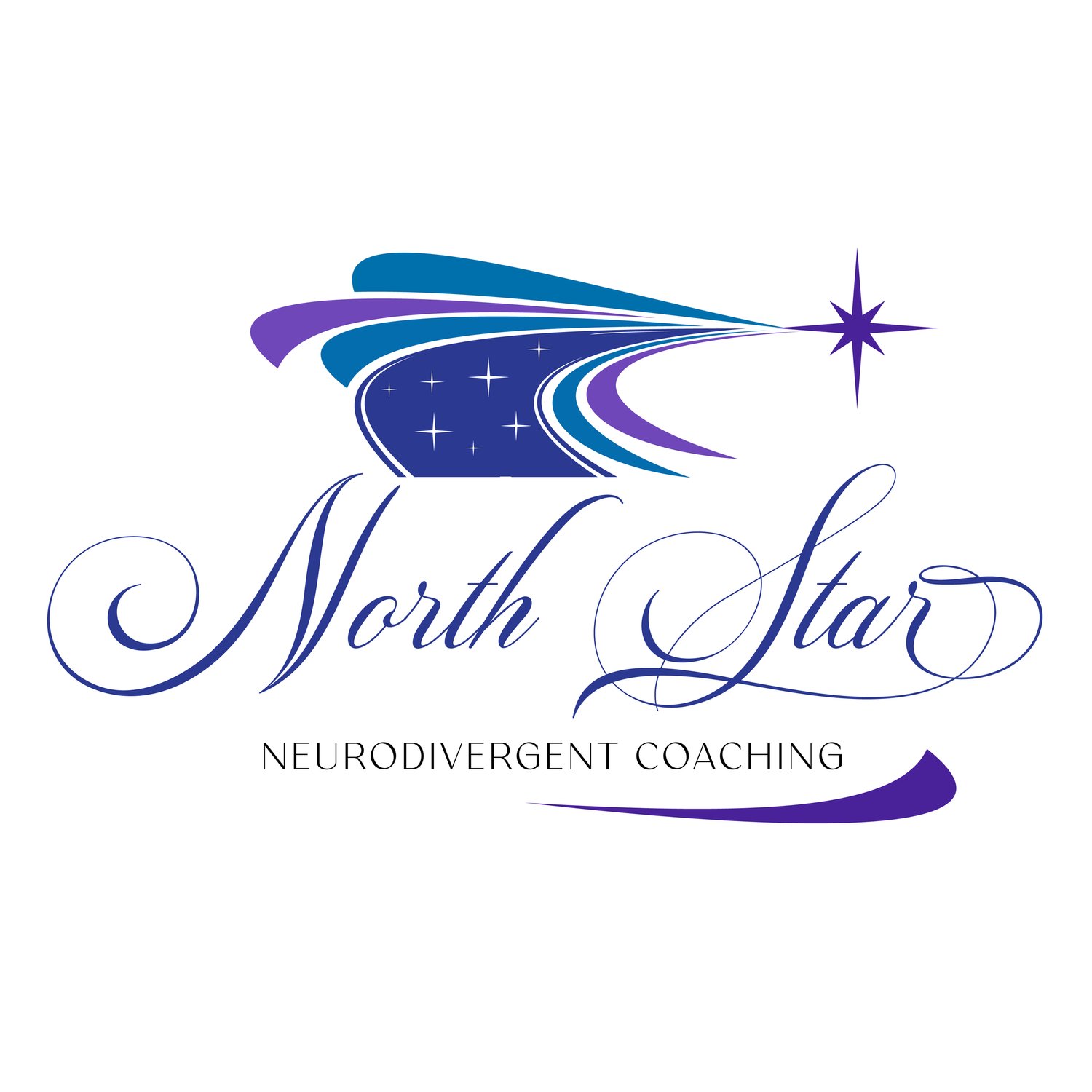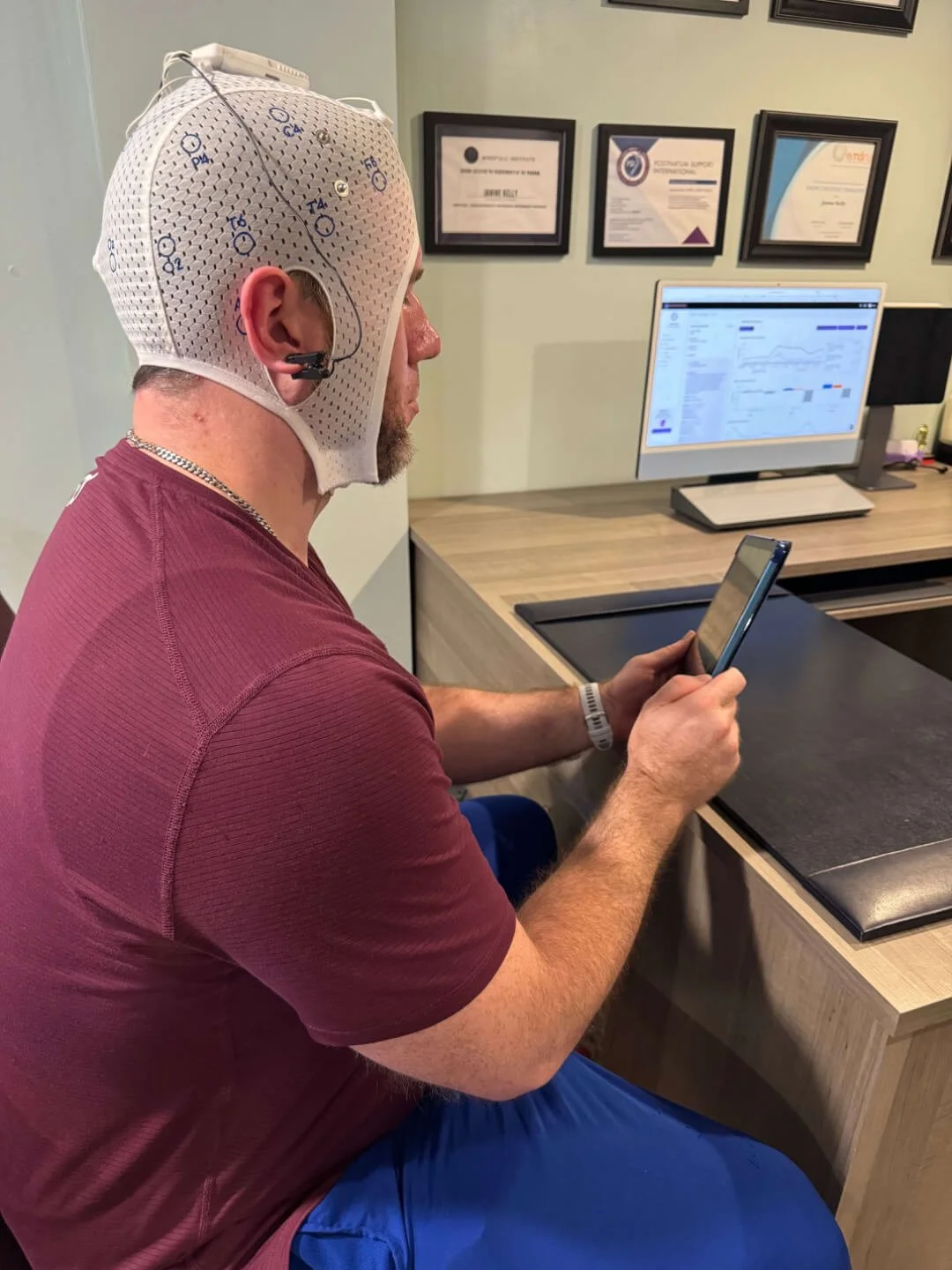Remote Neurofeedback
for Neurodivergents
*Services are provided virtually throughout the United States
Maximize the benefits of Neurofeedback by training when you'd like and as frequently as you'd like from the comfort of you own home!
What is Neurofeedback?
Neurofeedback is a personalized, non-invasive way to train your brain to work with you, not against you. This technique gives you real-time feedback on your brain’s activity, helping you better understand and regulate it. For teens and adults with ADHD and Autism, neurofeedback is a tool that can help you tap into your brain’s strengths while addressing areas that might need a little more balance.
How Neurofeedback Works
Neurofeedback is a collaborative process, where we work together to support your goals. During each session, you place small sensors on your scalp to monitor your brainwaves. These brainwaves are then translated into visual or auditory feedback, like a video or game that reacts to how your brain is functioning. As you see or hear these changes, your brain learns how to self-regulate in a way that feels more comfortable and natural to you. Each session is customized to your needs, respecting the way your neurodivergent brain works.
How Neurofeedback Helps with ADHD
Neurofeedback isn’t about trying to change who you are or “fixing” your ADHD, it’s about helping your brain work more smoothly so you can thrive. Here’s how it can support you:
Improved Focus: Neurofeedback training helps strengthen your attention span, making it easier to stay on task without constant distractions.
Better Impulse Control: By guiding your brain toward more balanced states, you can make decisions more thoughtfully while still embracing your natural spontaneity.
Managing Hyperactivity: Neurofeedback encourages your brain to find a sense of calm, allowing you to channel your energy in a way that works for you, without dimming your vibrant personality.
Emotional Regulation: If you experience strong emotions, neurofeedback can help bring more balance, making it easier to manage highs and lows.
How Neurofeedback Helps with Autism
For Autistics, neurofeedback is a powerful tool that respects your unique way of experiencing the world while offering support in key areas:
Sensory Processing: If sensory overload is part of your experience, neurofeedback can help your brain process sensory input more smoothly, reducing overwhelm while honoring your sensory preferences.
Social Engagement: For those seeking more ease in social interactions, neurofeedback can help reduce anxiety, improve focus, and make communication feel more comfortable.
Emotional Stability: Neurofeedback guides your brain toward more regulated emotional states, helping you feel more grounded and calm in daily life.
Reducing Anxiety: Many Autistic teens and adults experience high levels of anxiety. Neurofeedback can help reduce stress, making different environments feel less overwhelming.
What to Expect: A Collaborative and Customized Approach
Initial Consultation: We’ll start by getting to know you and discussing your goals. This includes an in-depth assessment, such as an EEG brainwave analysis, to help us understand what’s going on in your brain.
Personalized Plan: Based on your assessment, we’ll create a neurofeedback plan tailored to you. Whether your focus is on improving concentration, managing emotions, or easing sensory overload, we’ll work together to create a plan that fits your life.
Neurofeedback Sessions: During each session, we’ll monitor your brainwaves while you engage with feedback like visuals or sound. This feedback helps your brain naturally adjust to more balanced states based on your personal goals, not what society says is “normal.”
Ongoing Support: We’ll check in regularly to see how you’re progressing and adjust the plan as needed. Your input is important to make sure the process feels right for you.
Maintaining Progress: Once you’ve reached your goals, we can set up occasional check-ins to help maintain your progress. Neurofeedback gives you the tools to keep growing at your own pace.
How does Remote Neurofeedback Work?
Device Access: You have the option to either purchase or rent the neurofeedback device either from me ($150 for 8 weeks and $75 each additional 4 weeks) or directly from the manufacturer ($99 one-time set up fee and $79 billed monthly). Detailed pricing information is provided below.
Initial Onboarding Session: Your first session will be conducted virtually, where I will guide you through setting up and using the neurofeedback device and software. During this session, we'll conduct an EEG assessment to evaluate your brain's overall functionality and identify any underlying traits that could be contributing to your symptoms. The assessment involves three conditions: eyes open, eyes closed, and task-focused, and typically takes about 5 minutes to complete. Based on the assessment results, I will create a personalized training protocol for you.
Neurofeedback Training: You have the flexibility to engage in neurofeedback training as often as you prefer. Each session lasts approximately 20 minutes, and it's recommended to train at a consistent time for optimal results.
Check-In Session: One week after your onboarding session, we'll have a virtual meeting to review your progress. During this appointment, we'll address any concerns you may have and resolve any issues that might arise, ensuring your training is on track.
Ongoing Support: After the initial sessions, we will continue to meet virtually every 12 training sessions, which is about every two weeks. During these appointments, I will review your progress using the EEG device and make any necessary adjustments to your training protocol.
Benefits of Remote Neurofeedback
Neurofeedback can be done not only in our office but also remotely from your home. Remote neurofeedback is just as effective and provides the flexibility to fit therapy into your lifestyle:
Autistics and ADHDers often thrive in familiar environments where they feel safe and in control. Remote neurofeedback allows individuals to engage in therapy from the comfort of their own home, reducing sensory overload and anxiety that can be triggered by new or overwhelming settings.
Remote sessions offer greater flexibility, allowing clients to choose times that fit their schedules and routines. This is particularly beneficial for those with executive functioning challenges, as it eliminates the need for travel and can be easily integrated into daily life.
Remote training can be tailored to the individual's specific needs in their own environment, where they may experience the challenges they want to address. This real-time personalization can enhance the effectiveness of neurofeedback training by addressing issues as they arise in the individual’s natural setting.
Engaging in neurofeedback training from home can empower individuals by giving them more control over the process. This autonomy can be particularly meaningful for neurodivergent individuals who may feel more at ease when they are in control of their environment.
Remote sessions can be more cost-effective by eliminating travel expenses and reducing the need for time off work or school. This can make neurofeedback training more accessible for a broader range of individuals.



